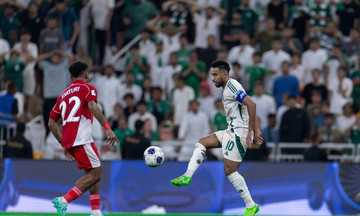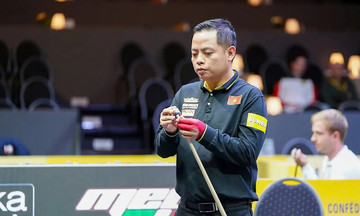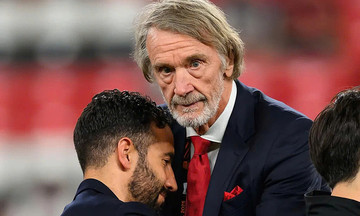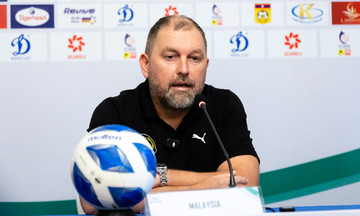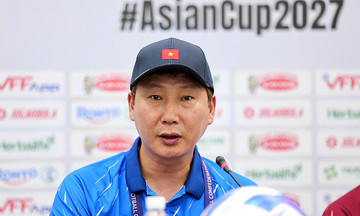The South American delegation included Paraguayan President Santiago Pena, Uruguayan President Yamandu Orsi, and top football officials such as CONMEBOL (South American Football Confederation) President Alejandro Dominguez, AFA (Argentine Football Association) President Chiqui Tapia, and their counterparts from Paraguay, Robert Harrison, and Uruguay, Ignacio Alonso. FIFA President Gianni Infantino and Secretary General Mattias Grafstrom hosted the meeting and listened to the proposal.
Argentine President Javier Milei was absent due to a meeting with US President Donald Trump amid the nation's economic crisis.
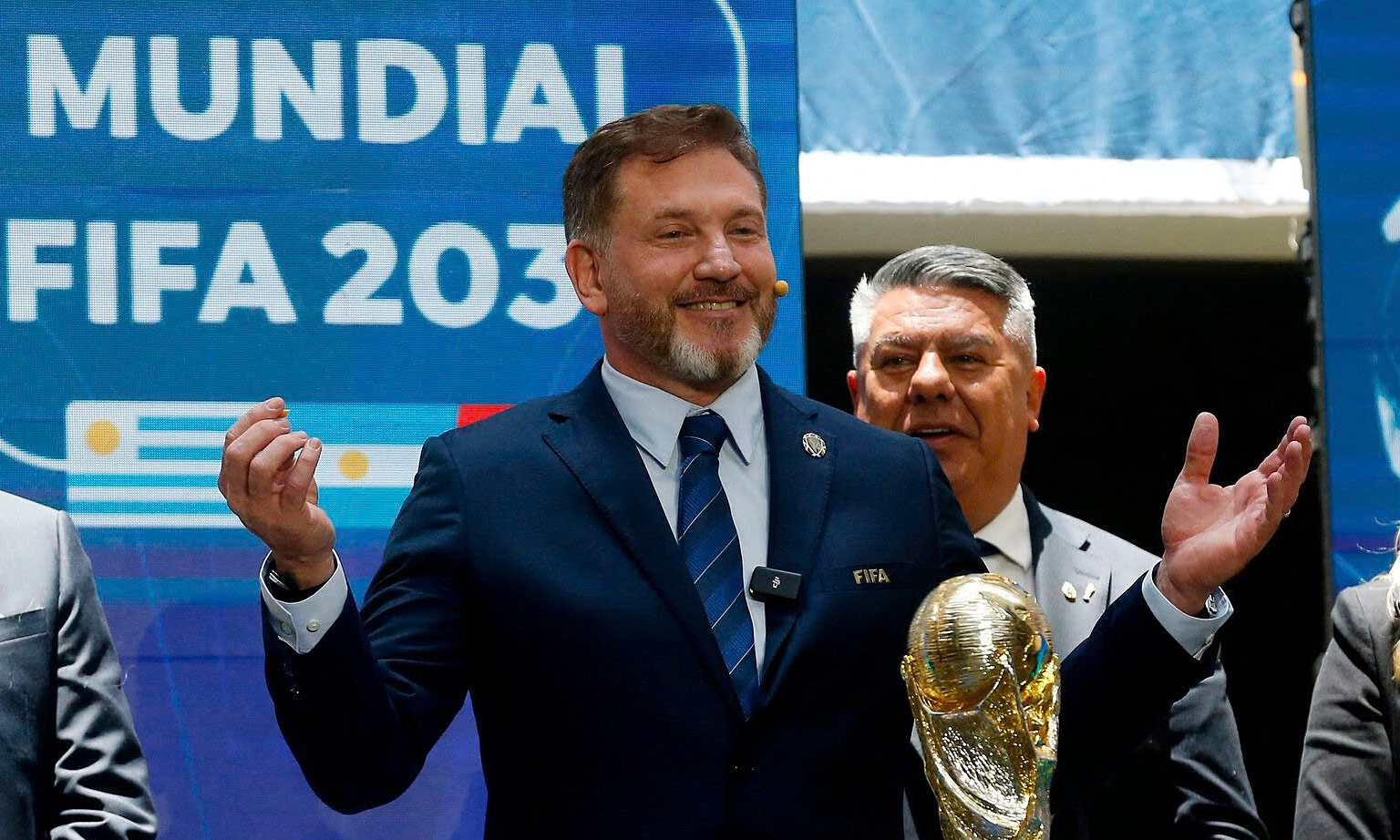 |
CONMEBOL (South American Football Confederation) President Alejandro Dominguez announces that Argentina, Uruguay, and Paraguay will host matches for the 2030 World Cup on 11/12/2024, in Asuncion, Paraguay. Photo: Reuters |
CONMEBOL (South American Football Confederation) President Alejandro Dominguez announces that Argentina, Uruguay, and Paraguay will host matches for the 2030 World Cup on 11/12/2024, in Asuncion, Paraguay. Photo: Reuters
According to US media, the idea of a 64-team World Cup was first raised by Alonso during a FIFA Council meeting in 3/2025. While the proposal initially surprised many members, FIFA confirmed its responsibility to consider all official suggestions. In April, Dominguez presented the idea again at the CONMEBOL congress, framing it as a way to honor the 100th anniversary of the first World Cup held in Uruguay in 1930.
"I want to invite everyone to reflect on doing something special, worthy of football and the global fan community. Football teaches us to play as a team," Dominguez said at the FIFA Congress in Paraguay in May.
Infantino also supported the idea at the time, stating that all proposals deserve consideration.
If approved, the 2030 World Cup would be the largest tournament in history, with over 30% of FIFA member associations participating. The tournament has steadily expanded over the years: from 16 teams to 24 in 1982, then to 32 in 1998, and is set to transition to 48 teams in 2026, hosted by the US, Canada, and Mexico.
However, this plan faces strong opposition. UEFA President Aleksander Ceferin argues that further expansion would dilute the quality and make qualifying matches less competitive. CONCACAF (Confederation of North, Central America and Caribbean Association Football) President Victor Montagliani commented, "We haven't even started with the 48-team format. The idea of 64 teams doesn't feel right."
Political context and regional interests are also driving South America's push for the proposal. In 2030, South America is only scheduled to host three opening matches in Argentina, Uruguay, and Paraguay, with the majority of the tournament taking place in Spain, Portugal, and Morocco.
Europe has hosted five World Cups since 1978, while South America has only hosted one, in Brazil in 2014. Even with three matches in 2030, CONMEBOL could lose the opportunity to host both the 2034 and 2038 tournaments due to FIFA's rotation policy.
South American leaders have posted videos on social media affirming their determination. Paraguayan President Pena stated, "We want to challenge ourselves, to dare to dream big. Paraguay is ready to be a protagonist."
Dominguez commented, "The 2030 World Cup cannot be just another tournament. This is a once-in-a-century opportunity."
The final decision rests with the FIFA Council. But with the backing of South American political and football leaders, the idea of a 64-team World Cup is gaining momentum.
Hoang An (via Athletic)




